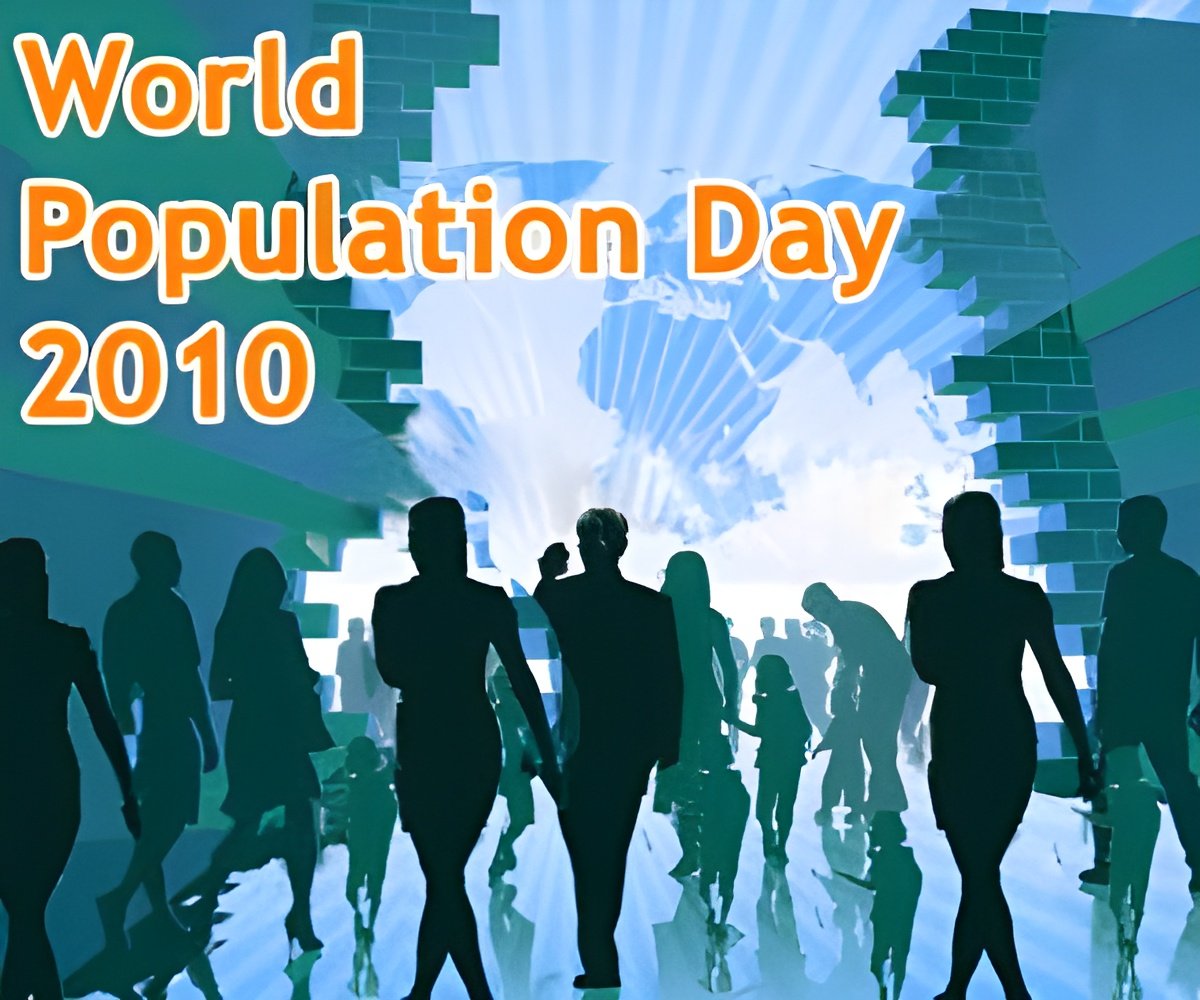World Population Day which falls on July 11, 2010 was instituted by the United Nations Population Fund (UNFPA) in 1989 as a conduit to create awareness on the issues concerning population.
World Population Day which falls on
July 11, 2010 was instituted by the United Nations Population Fund (UNFPA) in 1989 as a conduit to create awareness on the issues concerning population, such as the importance of family planning, gender equality, poverty, maternal health and human rights. The day was born out of the popular sentiment among world leaders that every human being had a right to decide the number and timing of their children.
The theme for
World Population Day 2010, "Everyone Counts," stresses the significance of data collection or census , crucial to assist leaders in decision-making, chart out policies and programmes to reduce poverty and hunger, improve education, health and gender equality. On this day, UNFPA offices around the world will organize lectures, rallies, and other activities to create awareness about population issues as well as stress on data gathering. More importantly it will seek to focus on enumerating minority groups which escape the census in some countries. According to Christian Delsol, Media specialist of the UNFPA, census data analysis is extremely vital to enable the connections between population phenomena, reproductive health, maternal mortality, gender equality and human rights.
“POPULATION, when unchecked, increases in a geometrical ratio” -Thomas Robert Malthus (1766-1834, British Economist) Census – How It Helps make everyone visible "This data is crucial as we strive for universal access to education, HIV prevention, treatment, care and support, and reproductive health and the achievement of the Millennium Development Goals” -
UNFPA Executive Director, Thoraya Ahmed Obaid A census is the only statistical operation which takes into account the whole population in a country.

Countries that do not take regular census are at a loss to get the complete picture of population fluctuation, its movement, fertility, mortality rates and economy

With census, governments can have solid data to ascertain if certain populations are not getting the benefit of government planning and services

Census creates the foundation of transparency, good administration and accountability

Census helps leaders and policy makers take good decisions based on authentic data

It also helps respond in the best possible manner to humanitarian crisis

Solid data is the only basis for the success of policies and programmes to reduce poverty and hunger, improve education, health and gender equality.

Censuses help in monitoring the progress of Millennium Development Goals (MDGs) - 2015 target for UN member states.
"Progress is measured in numbers - percentages, ratios and rates - yet progress is about people. Nowhere is this link more direct than in the use of data to make informed decisions about policies and programs to advance human development." - Christian Delsol of UNFPA
The World Bank says, 982 million people from developing nations sustain on a paltry $1 a day or even less.

One in twelve people worldwide is malnourished.

More than 500 million people from the Asian, African and Latin American countries live in abject poverty.

15 million children die of hunger.

Starvation death occurs every 3.6 seconds.

Modern contraception is still not within reach for millions of men, women, and young people.
On this World Population Day, it’s a clarion call to decision-makers to ensure each and every person counts. This is the only way that needs of all women and men, girls and boys will be visible so that they can be addressed, translating it into action and progress of the nation.
Source-Medindia










